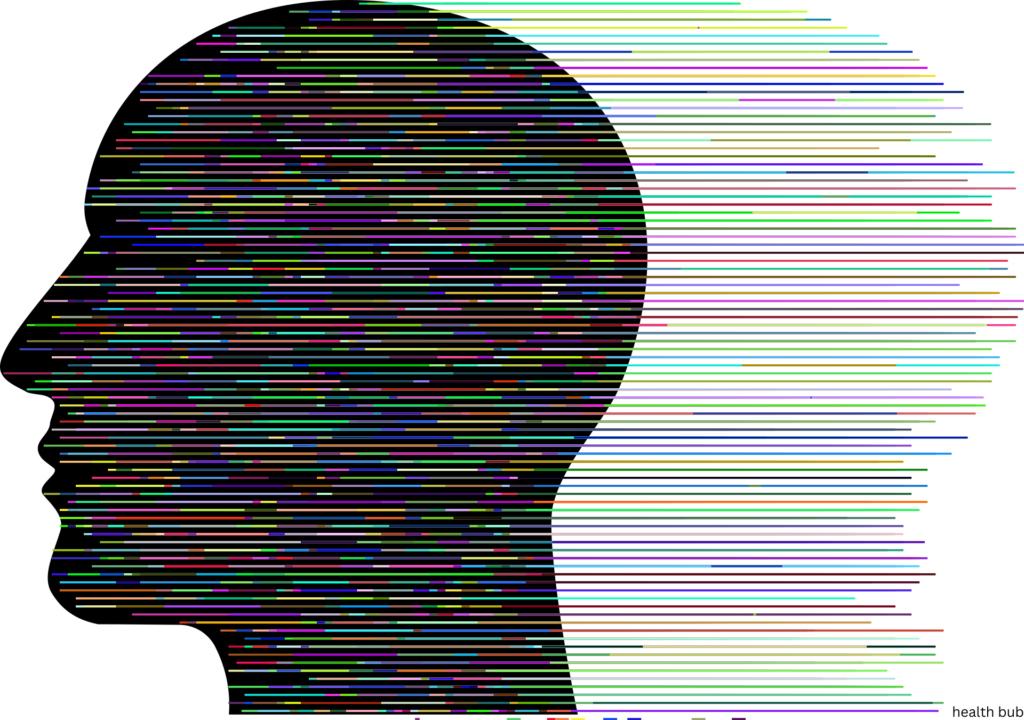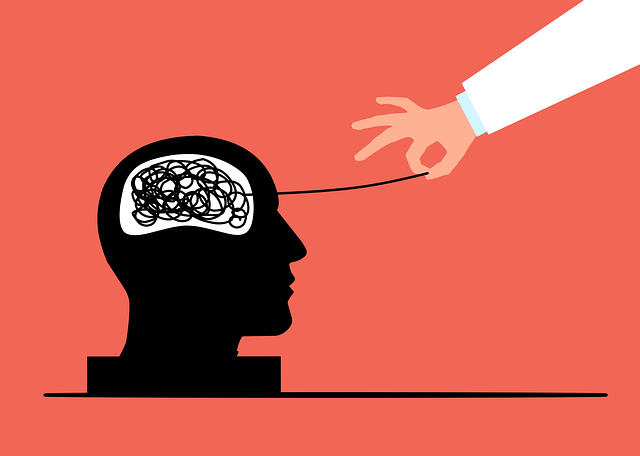Transforming the Future of Emotional Well-being
The integration of AI in mental health therapy is revolutionizing the way we address emotional and psychological well-being. As the demand for mental health support continues to rise, AI is emerging as a valuable tool to enhance traditional therapy methods, making mental health care more accessible, personalized, and effective. In this blog post, we explore the impact of AI in mental health therapy, its benefits, challenges, and the exciting possibilities it holds for the future.
Table of Contents
Understanding AI in Mental Health Therapy
Artificial intelligence (AI) has become an integral part of various industries, including healthcare. In recent years, AI’s role in mental health therapy has been gaining attention due to its potential to revolutionize how mental health services are delivered. AI in mental health therapy can provide tools to enhance access to care, improve diagnosis accuracy, offer personalized treatment plans, and support mental health professionals in providing better care. This article explores the various ways AI is transforming mental health therapy and the implications of this shift for both patients and practitioners.
The Growing Need for AI in Mental Health
Mental health disorders are among the most common health issues worldwide, affecting millions of people. Conditions such as depression, anxiety, bipolar disorder, and post-traumatic stress disorder (PTSD) often go undiagnosed or untreated due to a variety of barriers, including limited access to care, stigma, and the shortage of mental health professionals. The World Health Organization (WHO) estimates that nearly one billion people live with a mental health disorder, yet only a fraction of those individuals receive the care they need.
AI presents a promising solution to address these challenges. With its ability to analyze large amounts of data, recognize patterns, and automate tasks, AI can enhance mental health care in ways that traditional approaches may not be able to. From improving early diagnosis to providing round-the-clock support through AI-driven therapy tools, the integration of AI into mental health care is poised to bridge the gaps in the current mental health system.
AI and Mental Health Diagnosis
One of the most significant ways AI is contributing to mental health therapy is through the improvement of diagnosis. Traditionally, diagnosing mental health disorders has relied heavily on subjective assessments conducted by therapists, psychologists, or psychiatrists. These assessments are often based on interviews, self-reports, and questionnaires, which can be prone to biases or inaccuracies. In some cases, individuals may not fully disclose their symptoms due to stigma or lack of awareness, making accurate diagnosis challenging.
AI has the potential to provide more objective and data-driven approaches to diagnosing mental health conditions. By analyzing data from a variety of sources—such as voice patterns, facial expressions, behavior, social media activity, and physiological data—AI can identify early signs of mental health disorders. For example, AI algorithms can detect changes in speech patterns that may be indicative of depression or analyze facial microexpressions to recognize emotional distress.
Several AI-driven platforms are already in development or use to support mental health professionals in making more accurate diagnoses. These platforms use natural language processing (NLP) to analyze patient conversations during therapy sessions and extract insights that may be helpful in diagnosing conditions such as anxiety, depression, or schizophrenia. By augmenting traditional diagnostic methods with AI, clinicians can provide more accurate, timely, and personalized care.
AI-Driven Mental Health Apps and Chatbots
AI-driven mental health apps and chatbots are becoming increasingly popular as tools for delivering accessible and affordable mental health support. These tools use AI algorithms to engage with users, provide therapeutic interventions, and offer mental health resources. One of the primary benefits of AI-based mental health apps is that they are available 24/7, allowing individuals to seek support at any time without waiting for a therapist’s appointment.
One of the most well-known examples of AI in mental health is Woebot, an AI-powered chatbot that uses cognitive behavioral therapy (CBT) principles to help users manage symptoms of anxiety and depression. Woebot engages users in conversations, provides mood tracking, and offers evidence-based strategies to improve mental well-being. Similarly, other AI-based apps, such as Wysa and Replika, offer personalized emotional support and mental health coaching through AI-driven conversations.
These apps are particularly beneficial for individuals who may be hesitant to seek traditional therapy due to stigma or cost concerns. While AI-driven mental health apps are not a replacement for professional therapy, they can serve as an accessible and convenient first step for those who need support.
Personalized Treatment Plans
Another area where AI is transforming mental health therapy is in the creation of personalized treatment plans. Mental health disorders vary widely from person to person, and treatment approaches that work for one individual may not be effective for another. AI can analyze vast amounts of patient data to develop customized treatment plans that are tailored to the unique needs of each individual.
For example, AI algorithms can analyze a patient’s history, symptoms, and response to previous treatments to recommend the most effective interventions. This personalized approach ensures that patients receive the right treatment at the right time, reducing the trial-and-error process that is often involved in mental health care.
Additionally, AI can help mental health professionals monitor a patient’s progress in real time. Wearable devices and smartphone apps can collect data on sleep patterns, physical activity, heart rate, and other physiological metrics. AI algorithms can analyze this data to track a patient’s mental health and alert healthcare providers if there are any concerning changes. This continuous monitoring enables more proactive and timely interventions, leading to better outcomes for patients.
AI-Assisted Therapy and Virtual Therapists
AI-assisted therapy, also known as augmented intelligence in therapy, is an emerging field where AI tools are used to enhance traditional therapy sessions. AI can assist therapists by providing insights, analyzing patient data, and even suggesting interventions during sessions. This allows mental health professionals to focus more on building rapport with their patients while using AI as a supportive tool to enhance care.
Virtual therapists, on the other hand, are AI-driven platforms designed to simulate a therapeutic conversation. These virtual therapists use AI algorithms to provide therapy sessions, offer coping strategies, and support individuals in managing their mental health. While virtual therapists are not a substitute for human therapists, they can provide additional support to individuals who may not have immediate access to professional care.
Virtual reality (VR) combined with AI is also being explored as a tool for mental health therapy. AI-powered virtual environments can simulate therapeutic scenarios that help individuals confront and overcome fears or anxieties in a controlled setting. For example, VR exposure therapy has been used to treat conditions such as phobias and PTSD. By creating a safe and immersive environment, AI-driven VR therapy can help individuals process their emotions and develop coping strategies.
Addressing the Global Mental Health Crisis
One of the most significant advantages of AI in mental health therapy is its potential to address the global mental health crisis. With a shortage of mental health professionals in many regions, particularly in low- and middle-income countries, AI-driven mental health tools can help fill the gap in care. These tools can provide mental health support to individuals who may not have access to traditional therapy due to geographic, financial, or cultural barriers.
AI-powered mental health platforms can scale to reach millions of users, making them a valuable resource for addressing the unmet demand for mental health services. By offering low-cost or free mental health apps, AI can make mental health care more accessible to underserved populations, reducing the overall burden of mental health disorders on society.
Ethical Considerations and Challenges
While the potential benefits of AI in mental health therapy are vast, there are also ethical considerations and challenges that need to be addressed. One of the primary concerns is data privacy. AI-driven mental health tools collect large amounts of personal and sensitive information, including conversations, emotional data, and physiological metrics. Ensuring the security and confidentiality of this data is crucial to maintaining trust between patients and AI platforms.
Additionally, there is the issue of algorithmic bias. AI algorithms are trained on data sets that may not be representative of diverse populations, leading to biased outcomes in diagnosis or treatment recommendations. For example, AI models trained on data from predominantly Western populations may not accurately diagnose or treat individuals from different cultural backgrounds. Addressing these biases and ensuring that AI tools are inclusive and equitable is essential to the ethical use of AI in mental health therapy.
The Benefits of AI in Mental Health Therapy
1. Increased Accessibility
One of the most significant advantages of AI in mental health therapy is its ability to bridge accessibility gaps. Geographic, financial, and social barriers often prevent individuals from seeking therapy. AI-powered chatbots and mobile applications provide on-demand support to users, ensuring help is available whenever and wherever it is needed.
2. Personalized Care
AI can analyze vast amounts of data to offer tailored insights and therapeutic suggestions. By learning from user interactions, AI systems can adapt their responses and recommend specific interventions, making therapy sessions more personalized and effective.
3. Early Detection and Intervention
AI-powered tools can analyze text, speech, and facial expressions to identify signs of mental health issues such as depression, anxiety, or stress. Early detection allows for timely intervention, potentially preventing the escalation of mental health conditions.
4. Support for Therapists
AI assists therapists by streamlining administrative tasks, analyzing session notes, and providing insights into a patient’s progress. This enables therapists to focus on building a deeper connection with their clients and crafting more effective treatment plans.
5. Cost-Effectiveness
Mental health care can be expensive and inaccessible for many. AI-driven solutions reduce the overall cost of therapy by offering affordable and scalable support options.

Applications of AI in Mental Health Therapy
1. Virtual Mental Health Assistants
AI chatbots like Woebot and Wysa are designed to engage users in conversations, offering cognitive-behavioral therapy (CBT) techniques, mindfulness exercises, and emotional support. These tools act as virtual companions, providing immediate assistance to those in need.
2. Predictive Analytics in Diagnosis
AI algorithms analyze patient data to identify potential risk factors and predict mental health conditions. This aids in creating targeted treatment plans and improving clinical outcomes.
3. Emotion Recognition Tools
AI-powered emotion recognition systems analyze vocal tone, facial expressions, and text to assess emotional states. These tools help therapists gain deeper insights into a client’s emotions, enhancing the effectiveness of therapy sessions.
4. Teletherapy Platforms
AI enhances teletherapy by offering features like real-time transcription, sentiment analysis, and therapeutic content recommendations. These functionalities empower therapists to deliver high-quality care remotely.
Challenges in Implementing AI in Mental Health Therapy
1. Data Privacy and Security
Handling sensitive mental health data requires robust security measures. Ensuring data privacy while using AI tools is a critical challenge that needs to be addressed with stringent regulations and technological safeguards.
2. Ethical Concerns
AI systems must be designed to prioritize patient safety and ethical considerations. Issues like bias in AI algorithms, lack of empathy, and potential over-reliance on technology raise ethical questions that require careful deliberation.
3. Accuracy and Reliability
AI tools need to be highly accurate to avoid misdiagnoses or inappropriate recommendations. Ensuring the reliability of AI-driven therapy tools involves rigorous testing and continuous updates.
4. Human Element in Therapy
While AI offers numerous advantages, it cannot replicate the empathy and emotional connection that human therapists bring to the table. Striking a balance between technology and human interaction is essential for effective therapy.
The Future of AI in Mental Health Therapy
The future of AI in mental health therapy looks promising, with advancements in technology paving the way for innovative solutions. Here are some potential developments to watch for:
- Integration of Virtual Reality (VR) with AI: VR-powered therapy sessions combined with AI could offer immersive and interactive therapeutic experiences for conditions like PTSD, phobias, and anxiety disorders.
- Multilingual AI Therapy: AI systems are expected to become more proficient in understanding and responding in multiple languages, broadening their accessibility across diverse populations.
- AI-Driven Peer Support Networks: AI could facilitate the creation of peer support groups, connecting individuals with shared experiences and fostering a sense of community.
- Continuous Monitoring Tools: Wearable devices integrated with AI might provide continuous monitoring of emotional states, offering real-time interventions and promoting proactive mental health care.
Final Thoughts
The role of AI in mental health therapy is transformative, offering immense potential to enhance emotional well-being on a global scale. By increasing accessibility, personalizing care, and supporting therapists, AI is reshaping the mental health landscape. However, it is crucial to address ethical, privacy, and reliability concerns to maximize the benefits of these innovative technologies.
As AI continues to evolve, it holds the promise of a future where mental health care is more inclusive, effective, and empowering. Whether as a supplement to traditional therapy or a standalone resource, AI is set to revolutionize how we approach mental health, making well-being a reality for millions around the world

